
Understanding Down syndrome?
It is a genetic disorder that occurs when abnormal cell divisions result in an extra full or partial copy of chromosome 21. The extra genetic material leads to developmental changes, especially the physical features of down syndrome. Babies born with an extra chromosome 21 have developmental issues- both physically and mentally.
Causes
In 95 percent of Down syndrome cases, it is caused by trisomy 21 — there are three copies of chromosome 21, instead of the usual two copies, in all cells. This is caused by abnormal cell division during the development of the sperm cell or the egg cell.
Symptoms

According to NIH, the common physical signs of Down syndrome are:
- Decreased or poor muscle tone
- Short neck, with excess skin at the back of the neck
- Flattened facial profile and nose
- Small head, ears, and mouth
- Upward slanting eyes, often with a skin fold that comes out from the upper eyelid and covers the inner corner of the eye
- White spots on the colored part of the eye (called Brushfield spots)
- Wide, short hands with short fingers
- A single, deep, crease across the palm of the hand
- A deep groove between the first and second toes
Typically, physical development in kids with Down syndrome is often slower than the development of children without the genetic disorder. For instance, because of poor muscle tone, a child with Down syndrome may be slower in milestone developments including learning to turn over, sit, stand, and walk. Despite these delays, children with Down syndrome can learn to participate in physical exercise activities like normal children. It may take longer than other children to reach developmental milestones, but kids with Down Syndrome will eventually meet many of these milestones at their own pace.
Intellectual and Developmental Symptoms

Individuals with Down syndrome experience cognitive impairment, problems with thinking and learning difficulties. In rare cases, Down syndrome is associated with severe cognitive impairment.
Other common cognitive and behavioral problems may include
- Short attention span
- Poor judgment
- Impulsive behavior
- Slow learning
- Delayed language and speech development
A majority of individuals with Down syndrome eventually develop the communication skills they require, although it might take longer for them to do so compared with others.
Prenatal screening for Down Syndrome:
Down syndrome can be diagnosed before birth via a couple of prenatal screening tests and diagnostic tests. Prenatal screening evaluates a person’s chances of having a child with Down Syndrome. They only provide a probability and do not convey if your fetus has a genetic condition. But a diagnostic test can provide a definitive diagnosis with complete accuracy.

In recent years, noninvasive prenatal screening tests have been made available. These tests involve blood being taken from the expectant mother as early as 10 weeks of gestation. It relies on the detection of cell-free DNA that circulates between the fetus and the expectant mother. According to the latest research, this blood test can detect up to 98.6% of fetuses with trisomy 21. A “positive” result on the test means that there is a 98.6% chance that the fetus has trisomy 21; a “negative” result on the test means that there is a 99.8% chance that the fetus does not have trisomy 21. The turnaround time for the test is about 8-10 days, and approximately 0.8% of the time, results are not obtained from the tests due to technical standards.
Why should you get a prenatal test done?
- Advanced Awareness: Some parents would like to know as soon as possible if their fetus has Down syndrome so that they could make preparations (like informing other family members and doing research on Down syndrome) prior to the birth.
- Adoption: Some parents would like to receive a prenatal diagnosis so that they could make arrangements for adoption if their fetus were to have Down syndrome. There is a long waiting list of families in the United States ready to adopt a child with Down syndrome.
- Termination: Some parents want to have a prenatal diagnosis so that they can discontinue their pregnancy. Parents should discuss this option with their obstetrician.
What other conditions or disorders are associated with Down Syndrome?
- Heart defects. Almost one-half of babies with Down syndrome have congenital heart disease (CHD), the most common type of birth defect.
 CHD can lead to high blood pressure in the lungs, an inability of the heart to effectively and efficiently pump blood, and cyanosis (blue-tinted skin caused by reduced oxygen in the blood).
CHD can lead to high blood pressure in the lungs, an inability of the heart to effectively and efficiently pump blood, and cyanosis (blue-tinted skin caused by reduced oxygen in the blood). - Vision problems. More than half of children with Down syndrome have vision problems, including cataracts (clouding of the eye lens) that may be present at birth. The risk of cataract increases with age.
- Hearing loss. Up to three-quarters of children with Down syndrome have some hearing loss.
- Infections. People with Down syndrome are much more likely to die from untreated and unmonitored infections than other people.
- Hypothyroidism. The thyroid is a gland that makes hormones the body uses to regulate things such as temperature and energy.
- Blood disorders. Children with Down syndrome are much more likely than other children to develop leukemia(pronounced loo-KEE-mee-uh), which is cancer of the white blood cells.
- Hypotonia (poor muscle tone). Poor muscle tone and low strength contribute to the delays in rolling over, sitting up, crawling, and walking that are common in children with Down syndrome.
- Problems with the upper part of the spine. Some children with Down syndrome have misshapen bones in the upper part of the spine, underneath the base of the skull
- Disrupted sleep patterns and sleep disorders. Many children with Down syndrome have disrupted sleep patterns and often have obstructive sleep apnea, which causes significant pauses in breathing during sleep
- Gum disease and dental problems. Children with Down syndrome may develop teeth more slowly than other children, develop teeth in a different order, develop fewer teeth, or have misaligned teeth compared to children who do not have Down syndrome.
- Epilepsy. Children with Down syndrome are more likely to have epilepsy, a condition characterized by seizures, than those without Down syndrome.
- Digestive problems. Digestive problems range from structural defects in the digestive system or its organs to problems digesting certain types of foods or food ingredients. Celiac disease. People with celiac disease experience intestinal problems when they eat gluten, a protein in wheat, barley, and rye.
- Mental health and emotional problems. Children with Down syndrome may experience behavioral and emotional problems, including anxiety, depression, and Attention Deficit Hyperactivity Disorder.
Treatment options for Down Syndrome?

There is no single, standard treatment for Down syndrome. Treatments are based on each individual's physical and intellectual needs as well as his or her personal strengths and limitations. People with Down syndrome can receive proper care while living at home and in the community.
A child with Down syndrome likely will receive care from a team of health professionals, including, but not limited to, physicians, special educators, speech therapists, occupational therapists, physical therapists, and social workers. All professionals who interact with children with Down syndrome should provide stimulation and encouragement.
Children, teens, and adults with Down syndrome also need the same regular medical care as those without the condition, from well-baby visits and routine vaccinations as infants to reproductive counseling and cardiovascular care later in life. Like other people, they also benefit from regular physical activity and social activities.
Early Intervention and Educational Therapy
“Early intervention” refers to a range of specialized programs and resources that professionals provide to very young children with Down syndrome and their families. Special educators, speech therapists, occupational therapists, physical therapists, and social workers work with kids with down syndrome from a very young age.
Treatment Therapies
 A variety of therapies can be used in early intervention programs and throughout a person's life to promote the greatest possible development, independence, and productivity. Some of these therapies are listed below.
A variety of therapies can be used in early intervention programs and throughout a person's life to promote the greatest possible development, independence, and productivity. Some of these therapies are listed below.
- Physical therapy includes activities and exercises that help build motor skills, increase muscle strength, and improve posture and balance. Physical therapy is important, especially early in a child's life, because physical abilities lay the foundation for other skills. The ability to turn over, crawl, and reach helps infants learn about the world around them and how to interact with it. A physical therapist also can help a child with Down syndrome compensate for physical challenges, such as low muscle tone, in ways that avoid long-term problems.
- Speech-language therapy can help children with Down syndrome improve their communication skills and use language more effectively. Children with Down syndrome often learn to speak later than their peers. A speech-language therapist can help them develop the early skills necessary for communication, such as imitating sounds. A speech-language therapist can help a child use alternate means of communication, such as sign language and pictures until he or she learns to speak.
- Occupational therapy helps find ways to adjust everyday tasks and conditions to match a person's needs and abilities. This type of therapy teaches self-care skills such as eating, getting dressed, writing and using a computer. An occupational therapist might offer special tools that can help improve everyday functioning, such as a pencil that is easier to grip. At the high school level, an occupational therapist could help teenagers identify jobs, careers, or skills that match their interests and strengths.
- Emotional and behavioral therapies work to find useful responses to both desirable and undesirable behaviors. Children with Down syndrome may become frustrated because of difficulty communicating, may develop compulsive behaviors, and may have Attention Deficit Hyperactivity Disorder and other mental health issues. These types of therapists try to understand why a child is acting out, create ways and strategies for avoiding or preventing these situations from occurring, and teach better or more positive ways to respond to situations.
Drugs and Supplements
Some people with Down syndrome take amino acid supplements or drugs that affect their brain activity. However, many of the recent clinical trials of these treatments were poorly controlled and revealed adverse effects from these treatments. Since then, newer psychoactive drugs that are much more specific have been developed. No controlled clinical studies of these medications for Down syndrome have demonstrated their safety and efficacy, however.
Assistive Devices
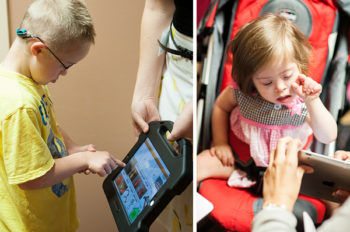 Quite often interventions for children with Down syndrome involve assistive devices including equipments, tools, or technologies that enhance learning or makes tasks easier to complete. Amplification devices for hearing problems, bands that help with movement, special pencils to make writing easier, touchscreen computers, and computers with large-letter keyboards are some of the most commonly used assistive devices.
Quite often interventions for children with Down syndrome involve assistive devices including equipments, tools, or technologies that enhance learning or makes tasks easier to complete. Amplification devices for hearing problems, bands that help with movement, special pencils to make writing easier, touchscreen computers, and computers with large-letter keyboards are some of the most commonly used assistive devices.
Future trends in Treating or Managing Down Syndrome
Restoring protein homeostasis improves memory deficits in Down syndrome
The defects in a conserved stress pathway dubbed the 'integrated stress response,' or ISR could explain the cognitive deficits in a mouse model of Down syndrome. The authors found that ISR is activated in the brains of a mouse model that recapitulates the cognitive deficits of the human syndrome and also in postmortem human brain samples from patients. More importantly, inhibition of the ISR, either by genetic or pharmacological means, reversed memory deficits in the mice. The findings support conducting future studies to explore the possibility that modulating the ISR might help treat Down syndrome and other disorders resulting from disruption of this network. The researchers first discovered that the rates of protein synthesis were reduced in the brains of Down syndrome mice and in human cells isolated from an individual with the syndrome. They also found that activation of the ISR, an evolutionary network that regulates protein homeostasis by regulating protein synthesis, could explain the protein synthesis deficits associated with Down syndrome.
Targeting key gene could help lead to Down syndrome treatment
Targeting a key gene before birth could someday help lead to a treatment for Down syndrome by reversing abnormal embryonic brain development and improving cognitive function after birth, according to a Rutgers-led study. Using stem cells that can turn into other cells in the brain, researchers developed two experimental models -- a living 3D "organoid" model of the brain and a mouse brain model with implanted human cells -- to investigate early brain development linked to Down syndrome, according to the study in the journal Cell Stem Cell. The study focused on human chromosome 21 gene OLIG2.
Drug shown to improve memory in those with Down syndrome
Researchers at the University of Colorado School of Medicine have found a drug that boosts memory function in those with Down syndrome, a major milestone in the treatment of this genetic disorder that could significantly improve quality of life. By far, there had never been any positive results in attempts to improve cognitive abilities in persons with Down syndrome through medication. This is the first time we have been able to move the needle at all and that means improvement is possible. The researchers hypothesized that memantine, which improved memory in mice with Down syndrome, could increase test scores of young adults with the disorder in the area of spatial and episodic memory, functions associated with the hippocampus region of the brain.
Drinking Green tea extracts lower the likelihood of the typical facial features of the disorder
 Children with Down's syndrome if given green tea from infancy are less likely to have the facial feature of the disorder according to a study. However, there was no safe dose has yet been determined. A study suggested that excess of the enzyme, DYRKIA; appears to be responsible for some of the facial features of the disorder. Green tea contains epigallocatechin-3-gallate (EGCG) which is known to inhibit this enzyme. Some studies have suggested that green tea can improve cognition in these children, prompting some parents to start giving the affected children green tea extracts as supplements in their diet. However, EGCG has not been approved for the treatment of cognitive disability in Down's syndrome. EGCG appears to have little effect after 3 years of age according to the study.
Children with Down's syndrome if given green tea from infancy are less likely to have the facial feature of the disorder according to a study. However, there was no safe dose has yet been determined. A study suggested that excess of the enzyme, DYRKIA; appears to be responsible for some of the facial features of the disorder. Green tea contains epigallocatechin-3-gallate (EGCG) which is known to inhibit this enzyme. Some studies have suggested that green tea can improve cognition in these children, prompting some parents to start giving the affected children green tea extracts as supplements in their diet. However, EGCG has not been approved for the treatment of cognitive disability in Down's syndrome. EGCG appears to have little effect after 3 years of age according to the study.
Sources / References: https://www.mayoclinic.org/diseases-conditions/down-syndrome/symptoms-causes/syc-20355977 https://ghr.nlm.nih.gov/condition/down-syndrome https://www.healthline.com/health/down-syndrome https://kidshealth.org/en/kids/down-syndrome.html https://medcraveonline.com/OGIJ/recent-advances-in-downrsquos-syndrome.html https://www.ncbi.nlm.nih.gov/pmc/articles/PMC5125364/







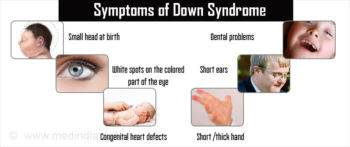 CHD can lead to high blood pressure in the lungs, an inability of the heart to effectively and efficiently pump blood, and cyanosis (blue-tinted skin caused by reduced oxygen in the blood).
CHD can lead to high blood pressure in the lungs, an inability of the heart to effectively and efficiently pump blood, and cyanosis (blue-tinted skin caused by reduced oxygen in the blood). Drugs and Supplements
Drugs and Supplements


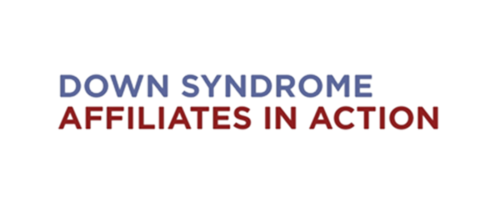
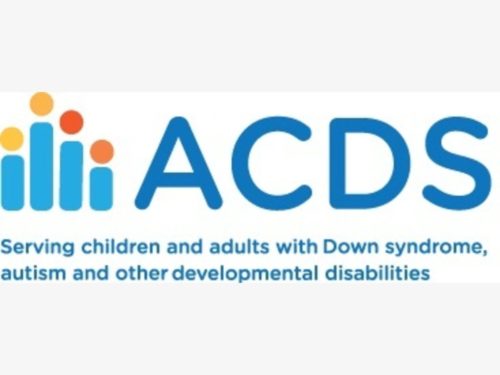
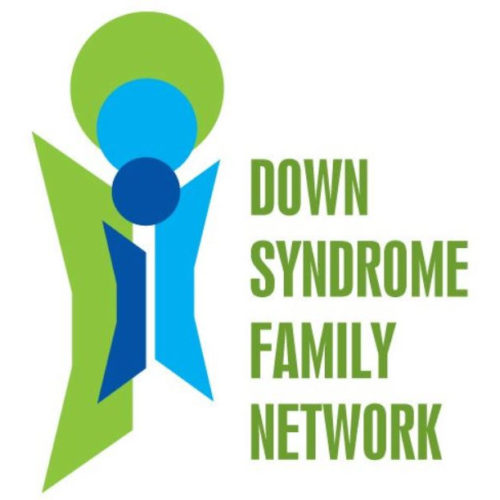
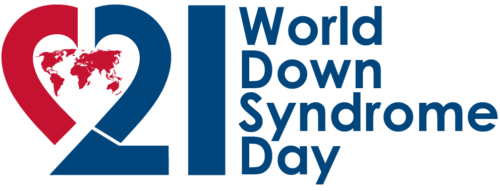
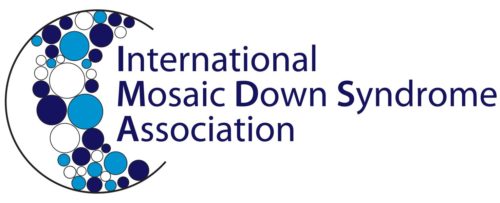
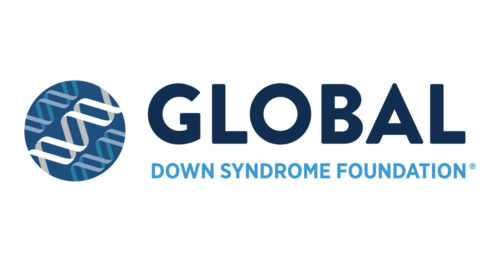


Leave a Reply